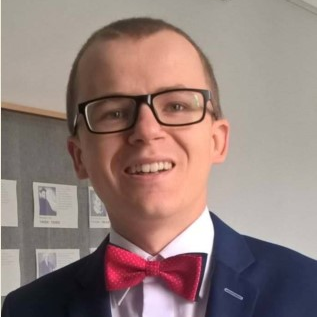Mathematical Perspectives on Quantum Computing and Communication
A special issue of Mathematics (ISSN 2227-7390). This special issue belongs to the section "Mathematical Physics".
Deadline for manuscript submissions: 31 October 2024 | Viewed by 4635
Special Issue Editors
Interests: quantum optics; entanglement; quantum dynamics; open quantum systems; non-Markovian evolution; quantum state tomography; time-bin encoding; phase retrieval; quantum Hamiltonian tomography; tomography; entanglement measures; quantum measurement; decoherence
Special Issues, Collections and Topics in MDPI journals
Interests: dynamical theory of open quantum systems; theoretical research on quantum transport and quantum measurement; condensed matter physics; theoretical physics
Special Issues, Collections and Topics in MDPI journals
Special Issue Information
Dear Colleagues,
We are pleased to invite you to submit your research for consideration in a Special Issue of Mathematics, focused on the latest advances in quantum information theory. The goal of this Special Issue is to showcase the latest research in this rapidly evolving field and to provide a platform for researchers to share their latest findings.
Quantum information theory is a rapidly developing field, with new breakthroughs and discoveries being made on a regular basis. This Special Issue will provide a unique opportunity for researchers to share their work and to discuss the latest developments in the field. Topics of interest include but are not limited to entanglement, quantum algorithms, quantum error correction, quantum cryptography, quantum communication, quantum computing, quantum simulation, mathematical methods, numerical modeling, and quantum machine learning and the mathematical formalism of open quantum systems.
We encourage submissions from researchers working in all areas of quantum information theory, including experimental, theoretical, and applied research. This Special Issue aims to highlight the mathematical aspects of the field and the use of mathematical methods and numerical modeling in the study of quantum information theory. The deadline for submissions is 31 December 2023.
We look forward to receiving your submissions and to publishing a high-quality Special Issue that reflects the latest advances in quantum information theory with a strong mathematical focus.
You may choose our Joint Special Issue in AppliedMath.
Dr. Artur Czerwinski
Dr. Cai Xiangji
Guest Editors
Manuscript Submission Information
Manuscripts should be submitted online at www.mdpi.com by registering and logging in to this website. Once you are registered, click here to go to the submission form. Manuscripts can be submitted until the deadline. All submissions that pass pre-check are peer-reviewed. Accepted papers will be published continuously in the journal (as soon as accepted) and will be listed together on the special issue website. Research articles, review articles as well as short communications are invited. For planned papers, a title and short abstract (about 100 words) can be sent to the Editorial Office for announcement on this website.
Submitted manuscripts should not have been published previously, nor be under consideration for publication elsewhere (except conference proceedings papers). All manuscripts are thoroughly refereed through a single-blind peer-review process. A guide for authors and other relevant information for submission of manuscripts is available on the Instructions for Authors page. Mathematics is an international peer-reviewed open access semimonthly journal published by MDPI.
Please visit the Instructions for Authors page before submitting a manuscript. The Article Processing Charge (APC) for publication in this open access journal is 2600 CHF (Swiss Francs). Submitted papers should be well formatted and use good English. Authors may use MDPI's English editing service prior to publication or during author revisions.
Keywords
- open quantum systems
- mathematical methods of quantum theory
- numerical modeling and simulations
- quantum information theory
- quantum algorithms
- quantum error correction
- quantum cryptography
- quantum communication
- quantum computing
- quantum simulation
- quantum machine learning
- quantum entanglement
- quantum error-correction codes
- quantum information processing
- quantum teleportation
- quantum key distribution
- quantum computing architectures
- quantum complexity theory
- quantum control theory
- quantum metrology
- quantum algorithms for optimization
- quantum supremacy
- quantum computing algorithms
- quantum artificial intelligence
- quantum neural networks
- quantum coherence
- quantum state tomography
- quantum foundations
- quantum many-body systems
- quantum supremacy experiments
- quantum technologies






